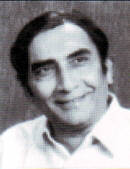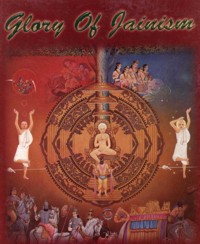Mahansinh
The life of Mahansinh of Delhi symbolised staunch adherence to vows and the power of pratikraman (ritualized confession). His fame as a truthful person and pious devout had spread beyond the frontiers of Delhi. He was a devotee of Acharya Devsundersuri and Acharya Somsundersuri. Once he honoured a large contingent of Sadhu-Sanyasi (Jain and Hindu monks) at considerable expense, which was a gesture symbolising the esteem in which he held them. Philanthropic Mahansinh’s act of charity aroused jealousy in others. Somebody poisoned the ears of Delhi’s emperor Firozshah Tughlaq against Mahansinh. This fabulously rich man’s wealth must be seized, thought the king. Mahansinh was summoned by the emperor. He appeared before the emperor who sternly said: “How much wealth do you have?” Mahansinh replied politely that he would have to estimate first and would let the king know the next day. The next day Mahansinh informed the emperor, very honestly, of the wealth he possessed. He did not hide even a penny. His honesty pleased the emperor so much that he offered him some money from his own coffers to make him a millionaire. Firozshah felt proud of having a person like Mahansinh in his kingdom. He also honoured the monks and their families, an act which reflected his love for religion and respect for the religious leaders.
The emperor once set out on a journey and he included Mahansinh in his retinue. A few minutes before sunset, Mahansinh stopped by the wayside since it was time for his daily pratikraman. He performed pratikraman with full devotion in his heart and asked for forgiveness for the sinful acts. He, then, proceeded to catch up with the retinue. Not finding Mahansinh the emperor had become worried. He sent his soldiers in different directions to search for him. Suddenly, then, Mahansinh was seen approaching and the emperor heaved a sigh of relief. He said: “Where have you been, Mahansinh?” Mahansinh said: “My lord, it was the evening and as usual I had to perform my pratikraman. I have been doing it for years and would not have liked to miss it even for a day.” Thereupon the emperor said: “But you know we are surrounded by enemies. It is not safe for you to sit alone in a forest to perform any religious act. It is risky.” Mahansinh, in utter humility, replied: “I appreciate your concern for me but I hold religion dear to my heart. I will prefer to die than to abandon doing my religious chores. Whatever the place I invariably perform pratikraman when the time is due. I am not afraid of death.” Mahansinh’s devotion to religion so pleased the emperor that he ordered that a hundred soldiers should stand in guard when he performed his pratikraman.
Once the emperor decided to test Mahansinh’s steadfastness. He chained his hands and feet and imprisoned him. When it was time for pratikraman Mahansinh said to the jail warder: “I will give you two gold coins if you remove my chains so as to enable me to perform pratikraman.” The warder removed his chains and Mahansinh performed pratikraman. The emperor was so much pleased by Mahansinh’s utter devotion to religion that he made him his treasurer, the highest honour he could confer.
 Dr. Kumarpal Desai
Dr. Kumarpal Desai

